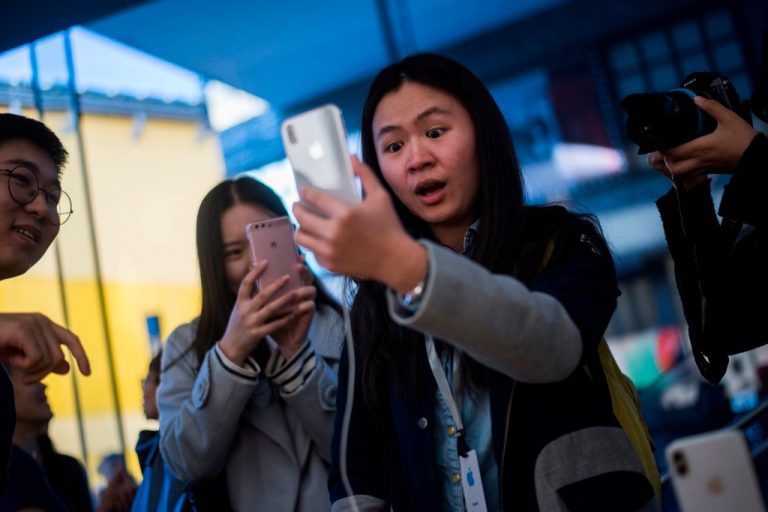Seven Apple suppliers in China may have benefited from Uyghur forced labor, according to a recent report by investigative news blog The Information. Six of these suppliers are said to have participated in work programs organized by the Chinese Communist Party (CCP).
The report says members of the ethnic minority forced into working in the programs are often taken far away from their homes to perform labor in factories and sweatshops, and face imprisonment if they refuse to participate. The initiatives are directly organized by the CCP.
“Advanced-Connectek has made unglamorous but critical computer components for Apple for more than a decade. For two of those years, it operated a factory inside an industrial park on the edge of the deserts of Xinjiang.The industrial park is surrounded by walls and fences with only one way in or out,” opens the report.
The Advanced-Connectek plant is located inside the Artux Kunshan Industrial Park. The park is situated close to the Artux City so-called “Vocational Skills Education Training Service Center,” which looks more like a re-education camp or a prison than a training center as it features guard towers and is surrounded by razor wire.
Shenzhen Deren Electric, which produces internal cables and antennas for Apple, has taken in 1,000 laborers from Xinjiang, according to Apple Insider.
Success
You are now signed up for our newsletter
Success
Check your email to complete sign up
Avary Holding, which manufactures circuit boards for Apple devices, was found to have added 400 people from Xinjiang in one of its factories between 2019 and 2020. AcBel Polytech, another Apple supplier, had used forced labor from Xinjiang between late 2018 and early 2019.
Lens Technology, which provides the glass used in iPhones, has taken in 600 workers from the Xinjiang region since 2018.
International involvement
Several of the firms mentioned in the report also supply parts that are used by other members of the Big Tech cartel such as Google, Microsoft, and Facebook, states an iMore article.
Responding to the report, Apple claimed to look for the presence of forced labor as part of its supplier assessments and that their investigations have found no evidence of such practice being used “anywhere we operate.”
In December last year, The Washington Post published a report, which found Lens Technology, a $130 billion USD company owned by China’s richest woman, was participating in the Uyghur labor scheme based on documents provided by the Tech Transparency Project. Lens Technology also supplies components to Tesla and Amazon.
Katie Paul, Director of TTP, stated that their research showed that forced labor in Apple’s supply chain “goes far beyond” what the tech company had acknowledged.
Apple used the same rhetoric about supplier assessments to deny the report’s veracity to the Washington Post.
In March of 2020, the Australian Strategic Policy Institute (ASPI) released a report showing that as many as 82 well-known global brands had active ties to factories where the CCP deployed Uyghur slaves for forced labor. The brands shamed in the report included names as big as Apple, Samsung, Sony, Nike, Volkswagen, Volkswagen, Gap, and BMW.
In April of 2021, Bloomberg published a report finding China’s solar panel industry in Xinjiang also employs forced labor. Nearly half of all polysilicon, the material used to manufacture solar panels, are produced in four factories located in the Uyghur-dominant Xinjiang region.
U.S. action
In a March 10 hearing held by the U.S. Commission on International Religious Freedom (USCIRF), Scott Nova, Executive Director of the Worker Rights Consortium (WRC) said it was “practically impossible” for an American company to procure goods from Xinjiang without using forced labor.
“Despite the fact that the crimes against humanity in the Uyghur region have been visible to international observers for a period of years, a vast number of global corporations, particularly but not only in the apparel sector, continue to source goods from the region…”
“From Target to Walmart, from Lululemon to Uniqlo, from Amazon to Zara, the supply chain of virtually every branded retailer that sells cotton garments runs through the Uyghur region,” Nova said at the hearing.
In February, a bipartisan group of lawmakers introduced an updated version of the Uyghur Forced Labor Prevention Act, which was passed by the House of Representatives in September of 2020 by a 406-3 landslide.
The updated bill seeks to prohibit all imports from Xinjiang unless the Commissioner of the U.S. Customs and Border Protection (CBP) can verify goods have not been produced using forced labor and submits a formal report to Congress confirming their findings.
An April 20 article by New York Times states that the bill could be included in a China-related bill Democrats are planning to introduce this year.
Rep. Jennifer Wexton (D-VA), a supporter of the Act, said goods made through forced labor have no place on American store shelves. “Despite international condemnation, the Chinese government’s brutal campaign of repressive surveillance, mass detention, forced labor, and even genocide in Xinjiang is rapidly expanding, and we must take steps to ensure U.S. companies and unwary consumers are not complicit in the abuses,” she said in a statement.
















